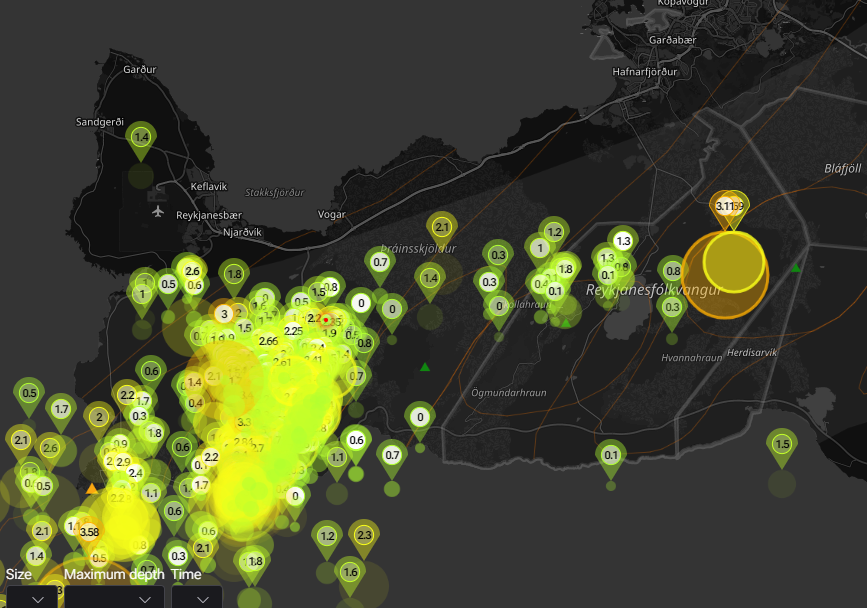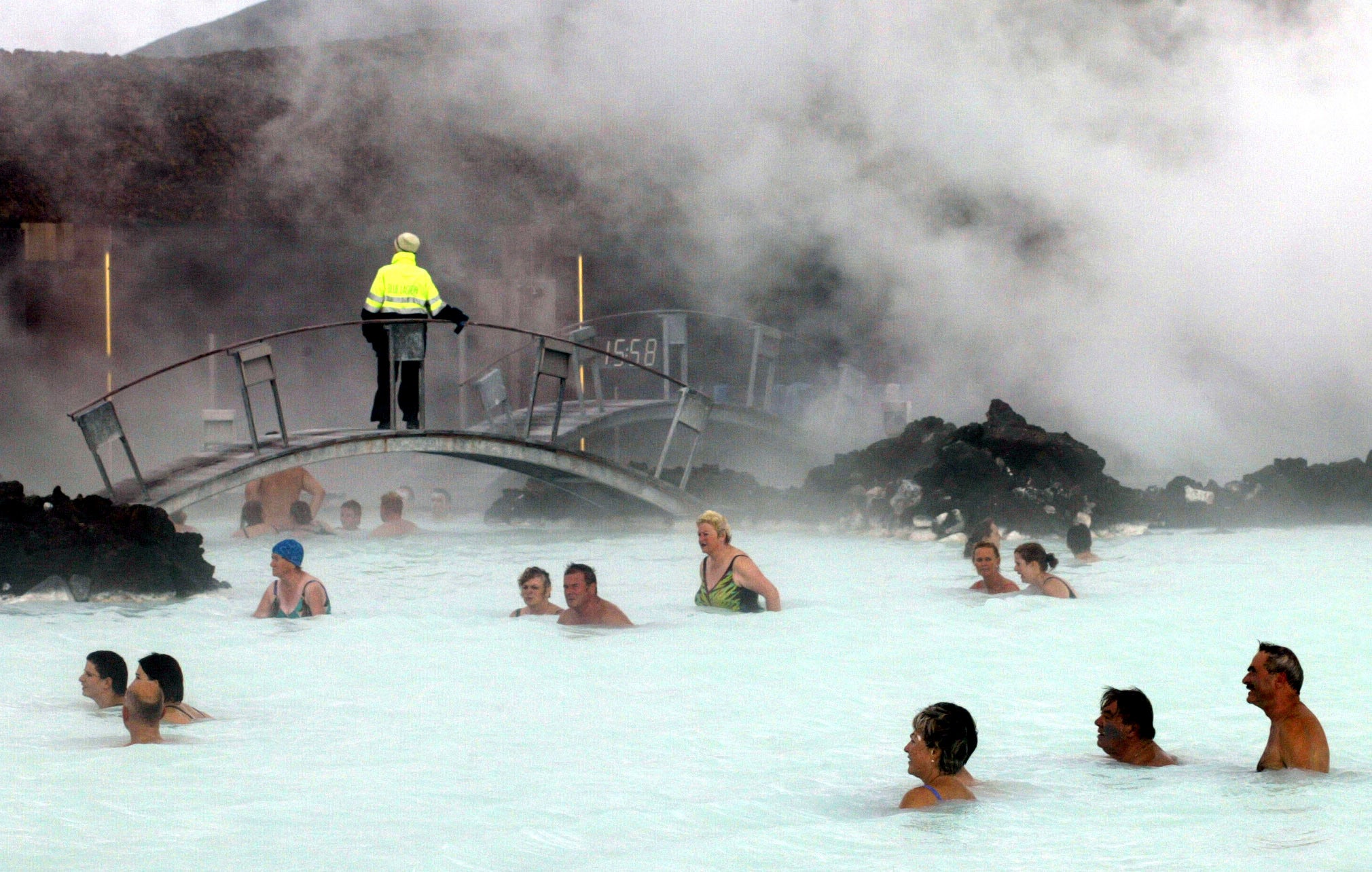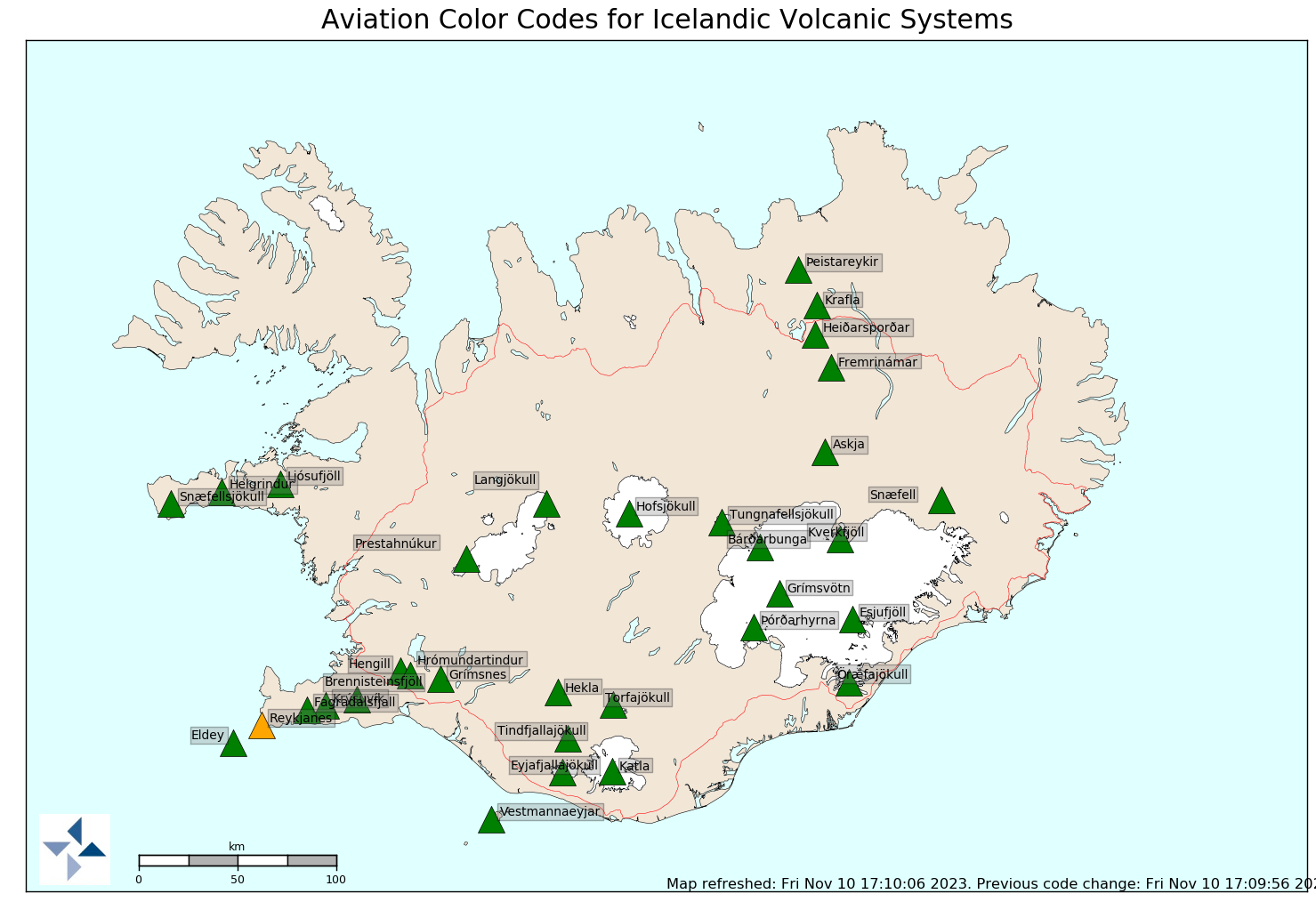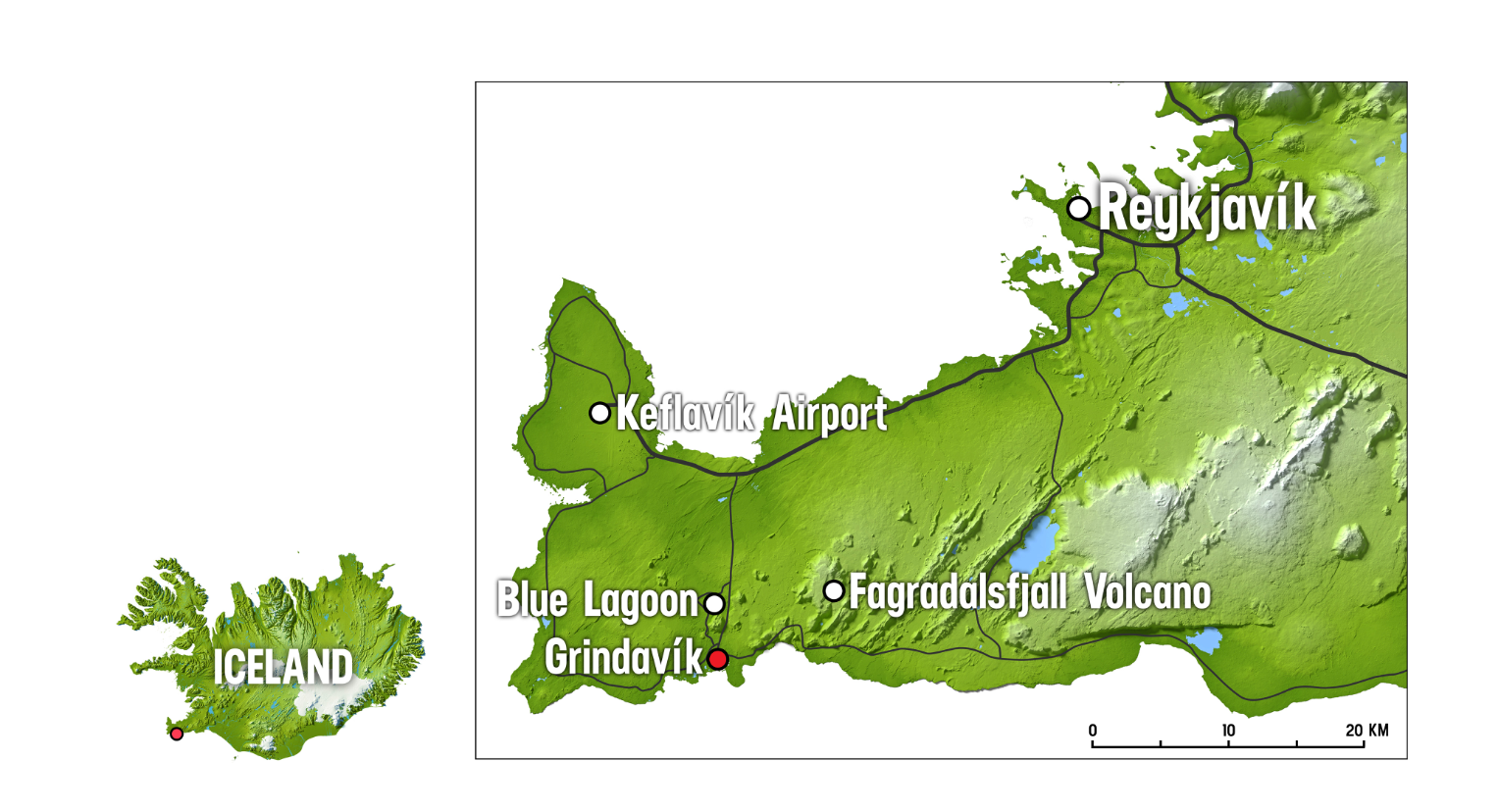The Independent's journalism is supported by our readers. When you purchase through links on our site, we may earn commission.
Is it safe to travel to Iceland after volcanic eruption? Your rights if you have a holiday booked
The Blue Lagoon has closed as the latest eruption begins
The earth is at its most restless in Iceland right now. Since November 2023 the Icelandic authorities have been monitoring seismic activity on the Reykjanes Peninsula, southwest of Reykjavik.
Two powerful earthquakes shook the capital on 3 April, with their epicentre in the Kleifarvatn area about 20 miles south of Reykjavik.
In just 24 hours on 7 April, more than 550 earthquakes were recorded. Minney Sigurdardóttir of Iceland’s Met Office, said: “The average depth is between 4 to 6 km, and the activity is most likely triggered by earlier seismic and volcanic events.
“These are classic trigger quakes, caused by the release of stress in the crust.”
They are part of a pattern of tectonic movements across the Reykjanes Peninsula, which is where the main airport, Keflavik, is located.
The latest serious volcanic eruption was on 1 April – marking the 11th such event since 2021. The Icelandic Met Office says: “The total length of the eruptive fissure is now about 1,200 metres and continues to extend southward.
“The Icelandic Meteorological Office received a report that a hot water pipeline has broken in the northern part of Grindavík. This confirms that significant fault movements have occurred within the town.
“Ongoing seismic activity is being recorded along the entire dyke intrusion, with the most intense activity at the northeastern end. The intrusion now extends over 3km further to the northeast than observed in previous eruptions.”
The Blue Lagoon thermal tourist attraction temporarily closed, but has now reopened.
The Foreign Office warns: “Recently there has been a series of volcanic eruptions on the Reykjanes peninsula in south-west Iceland, the latest on 20 November.
“These have affected the town of Grindavik and the area to the north of it. Keflavik International Airport and the road to it is unaffected and operating normally. The capital city, Reykjavik, and the rest of Iceland is not affected by these recent eruptions.
“It is likely there will be further eruptions in this location. The government of Iceland monitors any seismic and volcanic activity closely and infrastructure is robustly designed, but not all events can be anticipated and can pose risks to your travel plans including travel delays and cancellations due to rock falls and landslides, sudden flooding and poisonous volcanic gases near eruption sites.”
These are the key questions and answers on consumer rights.
I am in Iceland. Will I be able to leave?
Yes, assuming the international airport remains open. Isavia, which runs Keflavik, said: “The airport is fully operational. Flights have not been impacted by recent eruptions and are on schedule.”
You may be keen to leave earlier than booked, in order to guarantee your getaway, but at present you will not be able to switch flights without paying a penalty.
The FCDO advises travellers to check the following resources for updates:

But didn’t an Icelandic volcano shut down European aviation for a week?
Yes. Travellers may remember where they were in April 2010, when the Icelandic volcano Eyjafjallajokull erupted. The skies of northern Europe completely closed to passenger aviation for almost a week.
A quarter of a billion cubic metres of volcanic ash was ejected and was carried southeast towards the UK and continental Europe by the breeze. The fear was that volcanic ash could damage jet engines and potentially bring down aircraft. In the biggest shutdown of aviation since the Second World War, 50,000 flights were cancelled and 8 million passengers had their travel plans wrecked.
More than 50,000 flights, with eight million passengers booked to travel, were cancelled.
But ash has not been an issue in the current geological outburst.
Thankfully, the circumstances are very different. Eyjafjallajokull erupted with a glacier on top. The addition of melting water meant that the lava cooled very quickly into tiny fragments. These were promptly propelled into the atmosphere to a height of 30,000 feet by the steam produced in the eruption.
The current eruption is not having anything like the same effect. The lava will cool and remain on the ground.
In addition, new guidelines established in the wake of the 2010 eruption allow aircraft to fly if volcanic ash is present in reasonably small quantities. Another Icelandic volcano erupted in 2011, and in that case only 1 per cent of flights in northern Europe were cancelled – rather than 100 per cent on some days in that extraordinary time.

What if I am booked on a package holiday?
Foreign Office advice stops well short of advising against travel to Iceland, meaning holiday companies can continue to operate as normal – with no automatic right to cancel.

Until and unless the Foreign Office warns against travel, the assumption is that everything will go ahead as normal.
The one exception is for holidaymakers who had planned to stay at the Blue Lagoon, an increasingly popular “wellness” destination, with an upmarket hotel on the site.
It has closed intermittently since the present series of eruptions began. Only those booked for a stay which cannot now take place have the chance to cancel; if you were hoping to pop in as a day visitor for a steamy stop in the volcanic rock pools, you will need to return at some time in the future.
Can I claim on insurance?
No, unless it is one of the vanishingly rare “cancel for any reason” policies. On standard travel insurance, “disinclination to travel” is not an acceptable reason for a claim.
Would you go to Iceland at the moment?
Yes, I would relish the opportunity. The Icelandic authorities are expert at handling seismic events, with extremely good monitoring and emergency systems in place.
I would book a package holiday, though, knowing that if the earth gets too restless for comfort in the vicinity, I would be able to cancel for a full refund.
It could also be that the new eruption becomes an attraction in its own right, as some have done.

Join our commenting forum
Join thought-provoking conversations, follow other Independent readers and see their replies
Comments
Bookmark popover
Removed from bookmarks